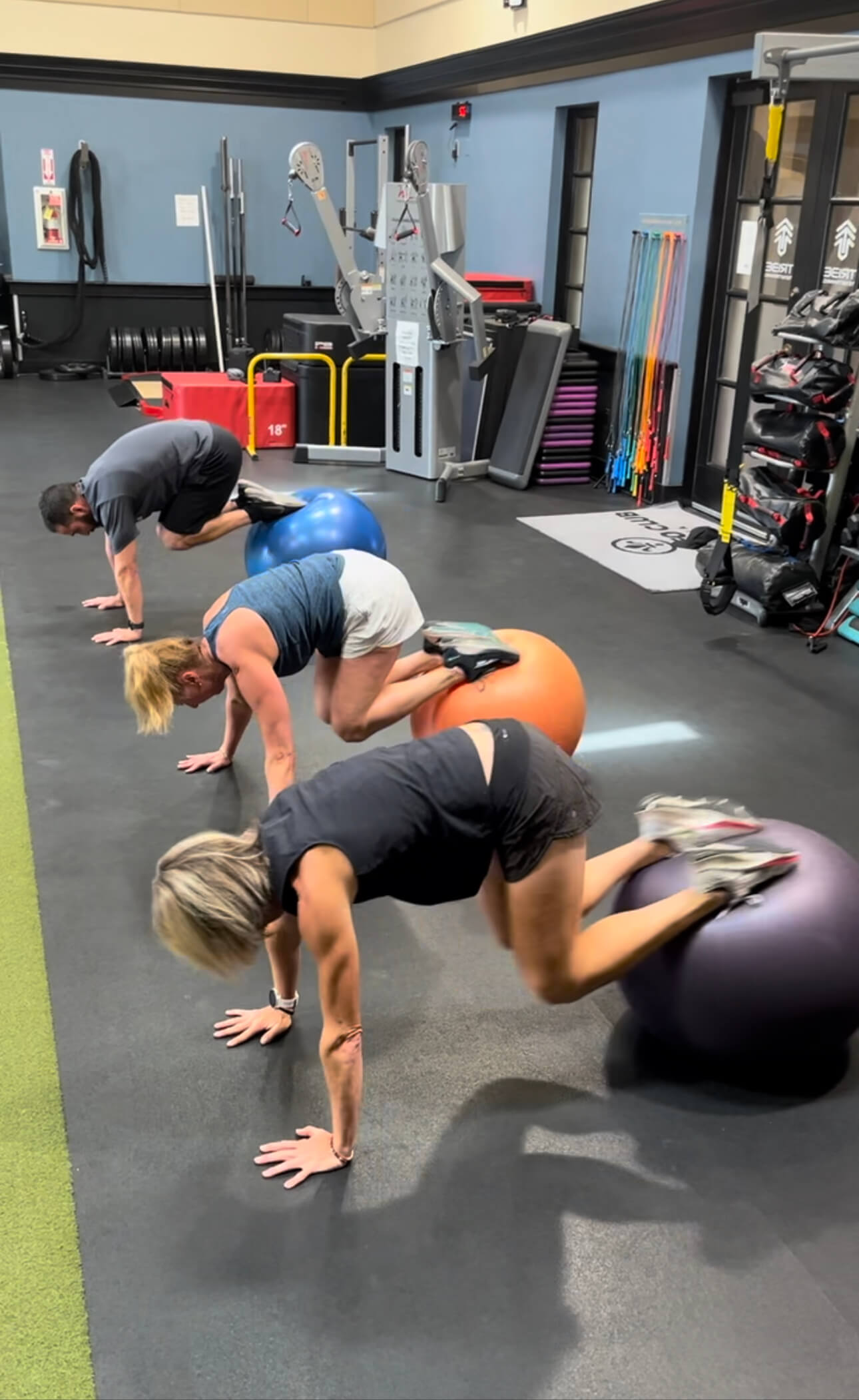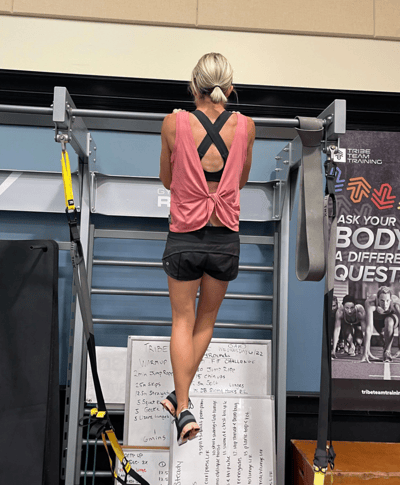Why exercise is even more effective than counseling or medication for depression
May 8th, 2023 | 4 min. read
By Jen Azevedo

Mental health disorders are one of this era's most neglected and misunderstood health issues. Yet, over 1 billion people worldwide live with a mental health disorder, and 300 million have depression.
Depression is the most common mental health disorder alongside anxiety and post-traumatic stress disorder. Many people suffer from two or three of these diagnoses, making their mental health needs even more complex.
Depression also accounts for the number one reason people miss work and is the top reason for health loss, according to the World Health Organization. Women and young people are the hardest hit since Covid began.
There is no clear treatment for depression. People often take prescribed medications, go to therapy, and employ self-care measures to alleviate symptoms. Recently exercise is being explored as one of the most effective remedies for depression.
The Paseo Club is a social club in the Santa Clarita Valley. We have supported our member’s fitness and well-being for almost twenty years.
We know that mental health is essential for everyone, so we have decided to share our newest findings about depression and exercise.
This article will outline what depression is, how it affects people's lives, treatment options, and the role of exercise in alleviating the symptoms of depression.
%20(2).jpg?width=425&height=273&name=compressedunnamed%20(2)%20(2).jpg) What is depression?
What is depression?
Depression is a medical illness that affects how you feel, think, and act. Common symptoms of depression are:
- Anxiety
- Exhaustion
- Lowered libido
- Sleep problems
- Feeling of sadness
- Difficulty concentrating
- Change in appetite and weight
- Feeling worthless or inadequate
- Indifference/Loss of interest in activities that you previously enjoyed
Depression, in its extreme, can also include suicidal ideation.
We don’t completely understand why or how people get clinical depression. There are some genetic links that can influence a person’s likelihood to become depressed and environmental factors also play a part.
.png?width=400&height=426&name=crop_comp_IMG-2699%20-%20Edited%20(1).png) How does depression affect people?
How does depression affect people?
Depression is more than having a hard time for a few weeks or months. It is a long-term, sometimes lifelong, mental illness.
Depression permeates all aspects of people's lives — work, family, friendships, hobbies, and physical health.
Many people think of depression as profound sadness. This can be true, but the symptom that is even more common than sadness is the feeling of being numb. When you are numb you feel apathetic to any and all aspects of your life, often rendering you a lifeless shell of who you once were.
Depressed people are often so debilitated that the parts of their lives that were fulfilling and pleasurable, become flat and uninspiring. They withdraw from friends, stop exercising, and lose their vibrance at work.
Depression does not happen in a vacuum. Depression impacts friends, family, spouses, and co-workers too. This can cause further feelings of worthlessness and guilt.
.png?width=400&height=394&name=crop_Compressed_IMG_9574%20-%20Edited%20(2).png) What are the options for treating depression?
What are the options for treating depression?
Living with depression is a struggle, but with help, life can become bearable again, if not joyful. Multiple steps can be employed simultaneously, creating a multi-prong approach for treating depression.
Therapy
Many people who seek support for depression meet with psychoanalysts weekly. There are different types of psychotherapy, including interpersonal and cognitive behavioral therapy. Patients can learn these important skills:
- Strengthen relationships
- Set realistic, positive goals for the future
- Develop coping strategies for challenging situations
- How to identify negative beliefs and replace them with healthy ones
- Identify triggers and make lifestyle decisions that support your well-being
Medication
For many people who suffer from depression, medication is a necessity to function in their lives.
There are many types of antidepressants. The most common are selective serotonin reuptake inhibitors (SSRIs). These drugs are considered safer and generally cause fewer bothersome side effects compared to other medications.
It can take months to find the best medication and dosage, requiring a process of trial and error.
 Light therapy
Light therapy
Some people's depression is exacerbated during winter when there are shorter days. This disorder is called seasonal affective disorder (SAD). This condition is commonly linked to a decrease in Vitamin D. Sitting in front of a white light box can help to alleviate symptoms of SAD.
Holistic therapies
Holistic therapies include supplements, acupuncture, homeopathic remedies, and/or bodywork. These modalities do not tend to get studied on a large scale as the prescribed medications do, but many people find that they can be a part of their approach to improving their mood. As with any therapy, it is best practice to discuss holistic therapies with your health provider.
What is self-care?
One of the most critical skills that people with depression work to develop is a self-care regimen. A self-care regimen is a set of activities that a person employs daily to nurture their physical and emotional health, prevent illness, and manage issues that arise.
Self-care activities can include:
- Reading
- Exercise
- Meditation
- Social time
- Quality rest
- Bubble baths
- Time in nature
- Healthy eating
- Engaging in creative pursuits
.jpg?width=425&height=319&name=comp_image_50727937%20(2).jpg) How does exercise help to alleviate the symptoms of depression?
How does exercise help to alleviate the symptoms of depression?
Self-care is often considered peripheral compared to therapy and antidepressants in treating depression. But recent studies have shown that just exercise alone is not only as effective as medication or counseling but more effective.
After reviewing 1,000 research trials, the British Journal of Sports Medicine suggests exercise is approximately 1.5 times more efficacious than either medication or cognitive behavior therapy.
Exercise has additional benefits compared to medications.
- Reduced cost
- Fewer side effects
- Improved cognitive function
- Improved physical health, such as healthier body weight and improved cardiovascular and bone health
Exercise has short-term and long-term benefits. Short-term benefits include increased endorphin and dopamine levels, which help people to experience pain relief, elevated moods, and a positive outlook.
The release of neurotransmitters has a long-term impact that literally changes the brain, increasing mood and cognition, decreasing inflammation, and boosting immune function.
Regular exercise can improve sleep, a common challenge for people with depression. It also provides a sense of accomplishment and increases self-esteem.
.jpeg?width=375&height=500&name=comp_IMG_3081%20(1).jpeg) What types of exercise are best for treating depression?
What types of exercise are best for treating depression?
Researchers found that doing 150 minutes each week of various types of physical activity significantly reduces depression, anxiety, and psychological distress that doing 150 minutes each week of various types of physical activity significantly reduces depression, anxiety, and psychological distress, compared to medications.
The higher the intensity of the exercise, the more beneficial it is. Examples of high-intensity exercises are:
- Biking
- Jump roping
- Brisk walking
- Jogging or running
- Plyometric exercises
- High-intensity interval training (HIIT)
You can complement high-intensity exercise with mobility, stretching, such as yoga and Pilates.
Creating a regular exercise schedule is the best way to support mental health. It may take as long as 6-12 weeks to reap the full benefits.
.jpg?width=300&height=400&name=comp_IMG_3311%20(1).jpg) Final thoughts on supporting your mental health
Final thoughts on supporting your mental health
Depression is a global issue that affects people of all backgrounds, ages, locations, and classes. It is a complex mental health disorder that often needs to be treated using a comprehensive approach with the aid of a qualified health practitioner.
Exercising improves people's well-being in the short and long term. Instead of relegating exercise as an “alternative therapy,” it can be used as the first step in treating depression.
Although people with depression must be diligent in caring for themselves, we must all attend to our mental health. Self-care is a practice for everyone.
The Paseo Club is not only a club to exercise but also a place to build social connections and a sense of community — also critical factors in having good mental health. We offer social events throughout the week for eating, visiting, and enjoying libations.
Check out club life to learn more about the Paseo Club. Next, schedule a tour so you can meet members, staff, and instructors.
To learn more about mental health, read these three articles.
Jen Azevedo is a tennis professional, pickleball professional, personal trainer, group exercise instructor, and the general manager of the Paseo Club. She loves the community at the Paseo Club and that it is also a safe and fun place for her daughter. Jen’s favorite activities are joining her tribe for trail races or her partners for tennis matches. Occasionally Jen slows down to relax with a book — she reads over 100 a year!
Topics:

